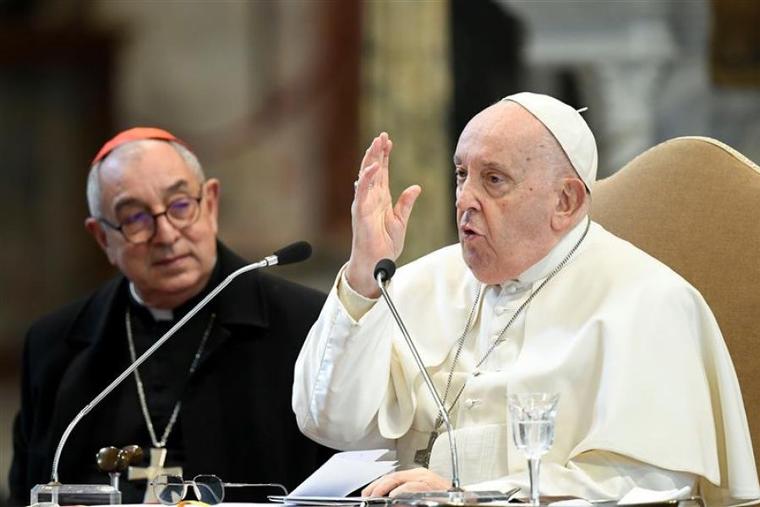- Feb 5, 2002
- 166,618
- 56,253
- Country
- United States
- Faith
- Catholic
- Marital Status
- Married
- Politics
- US-Others
Pope Francis responded publicly to questions about the Vatican’s declaration on blessings for same-sex couples for the first time in a television interview on Sunday night. He also responded to questions about the declaration during a closed-door meeting with 800 priests from the Diocese of Rome on Saturday morning, saying: ‘People are blessed, not sin.’
Pope Francis responded publicly to questions about the Vatican’s declaration on blessings for same-sex couples for the first time in a television interview on Sunday night.
In an appearance on an Italian talk show on Jan. 14, the 87-year-old Pope was asked if he “felt alone” after the publication of Fiducia Supplicanswas met with some resistance.
“Sometimes decisions are not accepted,” Pope Francis replied. “But in most cases, when you don’t accept a decision, it’s because you don’t understand.”
The Pope underlined that “the Lord blesses everyone” and that a blessing is an invitation to enter into a conversation “to see what the road is that the Lord proposes to them.”
“The Lord blesses everyone who is capable of being baptized, that is, every person,” Francis repeated.
“But we are to take them by the hand and help them go down that road, not condemn them from the beginning,” he added. “And this is the pastoral work of the Church. This is very important work for confessors.”
Continued below.

 www.ncregister.com
www.ncregister.com
Pope Francis responded publicly to questions about the Vatican’s declaration on blessings for same-sex couples for the first time in a television interview on Sunday night.
In an appearance on an Italian talk show on Jan. 14, the 87-year-old Pope was asked if he “felt alone” after the publication of Fiducia Supplicanswas met with some resistance.
“Sometimes decisions are not accepted,” Pope Francis replied. “But in most cases, when you don’t accept a decision, it’s because you don’t understand.”
The Pope underlined that “the Lord blesses everyone” and that a blessing is an invitation to enter into a conversation “to see what the road is that the Lord proposes to them.”
“The Lord blesses everyone who is capable of being baptized, that is, every person,” Francis repeated.
“But we are to take them by the hand and help them go down that road, not condemn them from the beginning,” he added. “And this is the pastoral work of the Church. This is very important work for confessors.”
Continued below.

Pope Francis Responds to Resistance to Fiducia Supplicans: ‘The Lord Blesses Everyone’
Pope Francis responded publicly to questions about the Vatican’s declaration on blessings for same-sex couples for the first time in a television interview on Sunday night. He also responded to questions about the declaration during a closed-door meeting with 800 priests from the Diocese of Rome...
